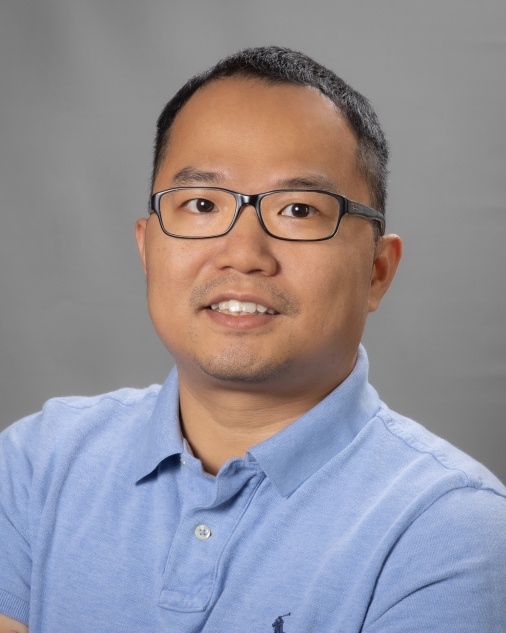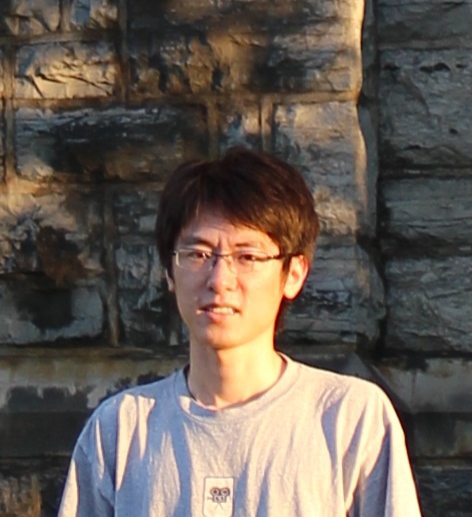Keynote Speakers
 |
Chang-Tien Lu
Professor of Computer Science at Virginia Tech |
| Title: Anticipating Urban Disruptions from Social Media: AI Models and Systems for Civil Unrest and Public Health Forecasting | |
| Abstract: Urban environments are increasingly shaped by rapid, dynamic societal changes, often signaled first through social media. This talk explores how AI-powered systems can harness social media data as an early warning mechanism for urban disruptions, such as civil unrest and infectious disease outbreaks. First, I introduce EMBERS, a real-time forecasting system that detects emerging civil unrest events by modeling spatiotemporal trends in open-source data streams. By employing techniques such as Dynamic Query Expansion (DQE) and time-sensitive event modeling, EMBERS delivers forecasts with actionable lead times, validated through deployments across Latin America. Case studies demonstrate how meaningful insights can be extracted from noisy, unstructured online discourse. Next, I present SimNest, a deep learning framework that integrates social media with epidemiological modeling to enable real-time flu surveillance at both city and regional levels. A multi-task spatiotemporal learning approach addresses challenges related to data sparsity and geographic heterogeneity, enabling robust urban-scale predictions. Together, these systems illustrate how AI and social data can shift crisis management from reactive response to proactive mitigation and help build more resilient urban futures. | |
|
Bio:
Chang-Tien Lu is a Professor of Computer Science at Virginia Tech, where he serves as Curriculum Lead at the Innovation Campus and Associate Director of the Sanghani Center for AI and Data Analytics. He received his Ph.D. from the University of Minnesota in 2001. An ACM Distinguished Scientist and IEEE Fellow, Dr. Lu’s research interests include spatial informatics, urban computing, artificial intelligence, and intelligent transportation systems. He has published over 250 papers in premier journals and conferences, with research supported by the NSF, NIH, DoD, and DoE. Dr. Lu serves on the editorial boards of ACM Transactions on Spatial Algorithms and Systems, Data & Knowledge Engineering, IEEE Transactions on Big Data, and GeoInformatica. He has held key leadership roles in major conferences, including General Co-Chair of ACM SIGSPATIAL (2009, 2020, 2021), SSTD (2017), IEEE Big Data (2024), and IEEE ICDM (2025). He previously served as Secretary (2008–2011) and Vice Chair (2011–2014) of ACM SIGSPATIAL, playing a pivotal role in advancing the field and the computing research community. |
|
 |
Yanjie Fu
Associate Professor at Arizona State University |
| Title: Can AI be the Copilot of Urban Planning for Shaping Tomorrow’s Cities? | |
| Abstract: As cities face rapid urbanization and the pressing need for sustainability, there is an urgent demand for advanced strategies in better land utilization, resource optimization, infrastructure development, improved equity, data-driven policymaking, as well as the better understanding of complex interdependencies between physical and virtual spaces. This talk will delve into the latest AI technologies for urban planning, and discuss major research thrusts in AI for urban planning from the geographic, human-centric, system operation, social, economic dimensions. | |
|
Bio:
Dr. Yanjie Fu is an associate professor in the School of Computing and AI at the Arizona State University. He received his Ph.D. degree from the Rutgers University in 2016, the B.E. degree from the University of Science and Technology of China (USTC), and the M.E. degree from the Chinese Academy of Sciences (CAS). His teaching and research have been recognized by: 1) three junior faculty awards: US NAE Grainger Foundation Frontiers of Engineering early career engineer (2023), US NSF CAREER (2021), and US NSF CRII (2018) awards; 2) several best paper (runner-up, finalist) awards (e.g., IEEE ICDM 2021 best paper finalist, ACM SIGSPATIAL 2020 best runner-up, ACM SIGKDD 2018 best student paper finalist); 3) several community and industrial recognitions: 2024 Stanford Elsevier World’s Top 2% Scientists, 2022 Baidu Scholar global top Chinese young scholars in AI, 2021 Aminer.org AI 2000 Most Influential Scholar Award Honorable Mention in Data Mining, 2016 Microsoft Azure Research Award; 4) several university-level awards: Fulton Engineering Top 5% Teaching Recognition Award, Reach the Stars Award, University System Research Board Award, and University Interdisciplinary Research Award. He is committed to data science education. His graduated Ph.D. students have joined academia as tenure-track faculty members. His recent focuses are machine learning with geospatial, time series data, data-centric AI (AI4data), AI for simulation and decisions, multimodal AI and foundation models, LLM and agentic AI. He currently serves as an Associate Editor of ACM Transactions on Knowledge Discovery from Data. He is a senior member of ACM and IEEE.
|
|
 |
Liang Zhao
Associate Professor at Emory University |
| Title: Graph Representation Learning for Network Generation, Optimization, and Verbalization | |
| Abstract: Graphs are ubiquitous data structures that denote entities and their relations, such as social networks, citation graphs, and neural networks. The topology of graphs is discrete data, which prevents it from enjoying numerous mathematical and statistical tools that require structured data. Graph representation learning aims to map graphs to their vector representations without substantial information loss, hence paving a new pathway for solving graph problems without discrete algorithms. In this talk, we will first introduce our recent works on graph representation learning that can preserve graphs' geometric information and properties. Then, we will exemplify several interesting research areas where their problem-solving benefits from our leveraging of graph representations. The first area is to solve graph optimization problems, such as influence maximization, source localization, etc., using continuous optimization over graph representations. The second area is to capture and predict deep learning models' dynamics over data distribution drifts, where the graph representation of neural networks is learned to reflect their functional space. The third area is to investigate the correlation and difference of the two views of graphs in mathematical language and natural language, where the graph representation acts as their bridge, with the help of large language models. | |
|
Bio:
Dr. Liang Zhao is an associate professor in the Department of Computer Science at Emory University. Before that, he was an assistant professor in the Department of Information Science and Technology and the Department of Computer Science at George Mason University. He obtained his PhD in 2016 from the Computer Science Department at the Virginia Polytechnic Institute and State University in the United States. His research interests include data mining and machine learning, with special interests in spatiotemporal and network data mining, deep learning on graphs, language and multimodal foundation models, distributed optimization, and interpretable machine learning. He won the National Science Foundation Career Award and the Middle-Career Award from the Institute of Electrical and Electronics Engineers Computer Society on Smart Computing. He also obtained many prestigious awards from industry, such as the Meta Research Award, Amazon Research Award, Cisco Faculty Research Award, and Jeffress Trust Award. He was recognized as one of the "Top 20 Rising Star in Data Mining," by Microsoft Search in 2016. He has won several best paper awards and shortlists. He was recognized as a "Computing Innovative Fellow Mentor," in 2021 by the Computing Research Association.
|
|